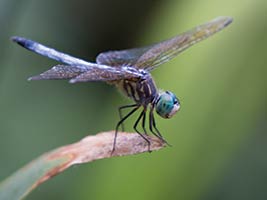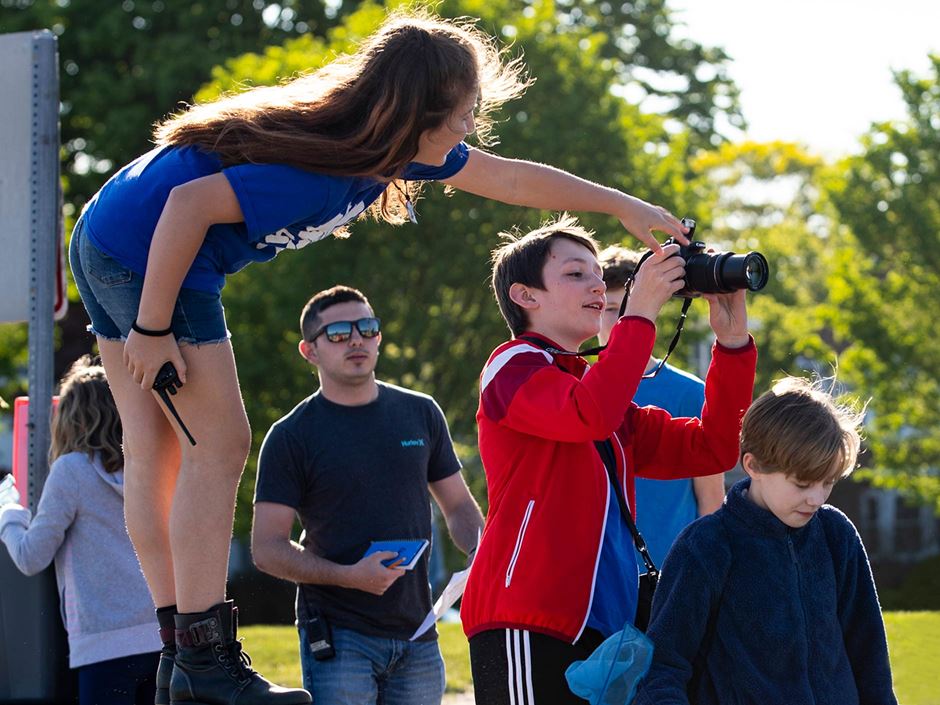Cape Ann is a region that is teeming with wildlife and diverse ecosystems ready for inquisitive minds to explore. That’s exactly what happened this past spring thanks to a community partnership between Endicott College and Kestrel Educational Adventures, a non-profit organization serving Beverly, Salem, Gloucester, Rockport, Manchester, and other neighboring Massachusetts towns, focused on outdoor learning.
Better known as the Conservation Club, the partnership was led by Endicott Associate Professor of Biotechnology, Bram Lutton, with the help of one of his students, Vince Giacalone ’21 (biology and biotechnology major), and Kestrel’s founder, Jessica Kagle.
 The Ipswich River is home to the Audubon
The Ipswich River is home to the Audubon
dragonfly, one of the many discoveries for
Conservation Club kids.For 10 Wednesdays during the spring, 12 area students from grades 5-10 studied the Ipswich River and different kinds of animals and plants that call it home. The students were picked up from their respective schools by Endicott vans, and then transported to locations along the North Shore. “We try to find locations nearby and to create projects that serve an environmental need for Cape Ann communities,” says Lutton.
Once a location is chosen, the young students take the reins and tailor their own educational experience. It’s the teaching philosophy of David Sobel, author of Childhood and Nature: Design Principles for Educators, and the primary focus of Kagle and Kestrel. “Sobel is a firm believer in students taking responsibility and devising their own inquiry-based studies; they learn so much more that way,” says Lutton. “The children essentially came up with their own system for studying the Ipswich River. They have different jobs, which are chosen democratically, and these assignments change each week.”
While the students spent some time working at Kestrel’s Conservation “Clubhouse,” most of their three-hour experience every Wednesday took place in the field, taking photos and notes, including a couple of days in canoes.
At the end of the club’s adventures, they spent a few days putting it all together online at kestreleducation.org/conservation. Says Lutton, “It offers a nice source that illustrates what the Ipswich River has to offer.”
The first club featuring Kestrel and Endicott was a success, and the plan is to repeat the program next spring.
Conservation & Community on the North Shore
Learning by doing: it’s the Endicott motto, one that we are sharing with the community through conservation efforts.
 Photo by David Le
Photo by David Le
Published on: November 19, 2019
Est. Read Time …